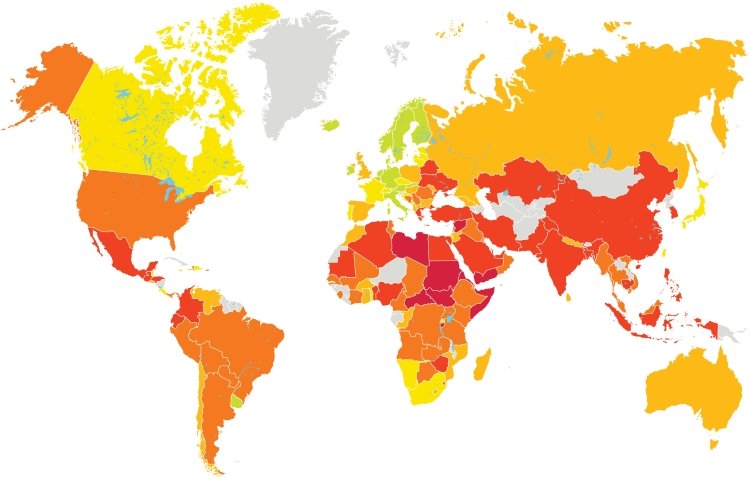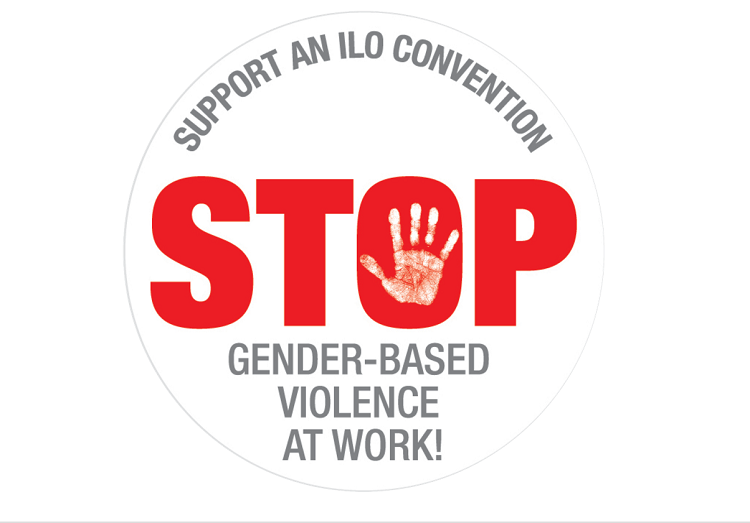60 participants from 50 affiliated organisations took part in the conference and elected the new PERC Youth Committee.
The conference elected Daniela Aleksieva from KNSB (Bulgaria) as the President of the PERC Youth Committee. The other members of the Committee are:
Benoit Constant, CSC, Belgium, Vice-President
Hans Richard Schmidt-Nielsen, AC, Denmark, Vice-President
László Kovács (MSZOSZ / Hungary)
Andrea Mone, CISL, Italy
Ilze Mihailova, LBAS, Latvia
Ivana Prnjat, CTUM, Montenegro
Aleksey Slyazin, FNPR, Russia
Tugba Balci, HAK-IS, Turkey, Vice-President

Concluding statement
We, as representatives of trade union youth in Europe, note with concern the extremely worrying effects of the economic and financial crisis on youth employment and its quality. The crisis has merely exacerbated the year on year trend of increasing “flexibility”, which has meant worsening job opportunities for young workers. More and more young workers find themselves in precarious jobs or are unemployed. We would particularly note the following trends, some of which started well before the crisis:
![]() the level of youth unemployment has been growing, reaching catastrophic figures in the South of Europe;
the level of youth unemployment has been growing, reaching catastrophic figures in the South of Europe;
![]() the ratio of young people working on temporary contracts or even without contracts is growing, and this is now regarded as “normal” employment in many European countries;
the ratio of young people working on temporary contracts or even without contracts is growing, and this is now regarded as “normal” employment in many European countries;
![]() in many countries the informal economy is the main source of employment for young workers;
in many countries the informal economy is the main source of employment for young workers;
![]() young people are usually the last to be hired in good years and the first to be fired in bad years, and youth employment is greatly affected by economic cycles;
young people are usually the last to be hired in good years and the first to be fired in bad years, and youth employment is greatly affected by economic cycles;
![]() young job seekers, particularly women, are often discriminated against by employers, in terms of remuneration, career prospects and family and lifestyle choices;
young job seekers, particularly women, are often discriminated against by employers, in terms of remuneration, career prospects and family and lifestyle choices;
![]() the transition from school to work seems to be the one of the biggest obstacles in this employment crisis: with shrinking labour markets millions of young graduates have little chance of getting decent jobs;
the transition from school to work seems to be the one of the biggest obstacles in this employment crisis: with shrinking labour markets millions of young graduates have little chance of getting decent jobs;
![]() the widespread use of “internships”, “traineeships” and “probation periods” are not contributing to the achievement of stable, decent jobs for young people; moreover, such arrangements can involve exploitation and social and wage dumping and may result in several years of “underpaid” or even unpaid employment for young people;
the widespread use of “internships”, “traineeships” and “probation periods” are not contributing to the achievement of stable, decent jobs for young people; moreover, such arrangements can involve exploitation and social and wage dumping and may result in several years of “underpaid” or even unpaid employment for young people;
![]() more worrying still is the fact that a significant proportion of the younger generation are excluded from “ordinary” life, since they are neither in school nor in work, nor again registered as unemployed. Large numbers of young people are simply being forgotten by societies.
more worrying still is the fact that a significant proportion of the younger generation are excluded from “ordinary” life, since they are neither in school nor in work, nor again registered as unemployed. Large numbers of young people are simply being forgotten by societies.
This crisis is broadening the generation gap and risks causing further divisions within and between societies. We, as trade unionists, need to build “solidarity bridges” within the workforce at this critical time and are prepared to do so. The youth of Europe are playing their rightful role in the trade union movement and are actively promoting decent work through national and international campaigning, organising, recruitment and education. We demand greater visibility and more respect from the union leadership, and new opportunities for our energy, dynamism and creativity to be fully used and appreciated. This will help enable the union movement to face up to both current realities and future challenges.
The unions need to promote societal change through trade union action - campaigning, mobilising, communication and education – and through raising awareness about trade unions and building a trade union identity. An early warning system in education facilities covering labour markets, employment conditions and trade unionism is a key issue for trade union development, together with effective mechanisms for protecting the rights of all workers. The rights of workers and quality of work must not be sacrificed to the crisis. The national and global anti-crisis measures must address the issue of quality employment for all, with decent work being placed at the centre of the recovery plans.
When electing the Youth Committee, we entrust the delegates with the task of developing campaigns on incorporating the interests of the younger generation in the anti-crisis policies of the trade union movement, and ensuring that the voice of the youth of Europe is heard. The World Day for Decent Work (WDDW) provides an unprecedented opportunity for us to show our strength and capabilities to the international trade union movement and it is our shared desire and intention to contribute to that mobilisation.
![]() We urge the YC to further analyse the impact of the crisis on young people’s work and the extent to which the anti-crisis measures are addressing employment and its quality, particular for those entering the labour markets;
We urge the YC to further analyse the impact of the crisis on young people’s work and the extent to which the anti-crisis measures are addressing employment and its quality, particular for those entering the labour markets;
![]() We request the YC to develop a plan of action for the WDDW and to start developing the youth section of the PERC work programme for 2010;
We request the YC to develop a plan of action for the WDDW and to start developing the youth section of the PERC work programme for 2010;
![]() We support the 10% target for young workers at the ITUC Congress and encourage our leadership to ensure this target is reached;
We support the 10% target for young workers at the ITUC Congress and encourage our leadership to ensure this target is reached;
![]() We entrust the YC with developing a platform to include our interests within pan-European policies, by prioritising cooperation with the ETUC YC and other youth structures actively involved in the region, and we are ready to commit our minds, hearts and hands to that task;
We entrust the YC with developing a platform to include our interests within pan-European policies, by prioritising cooperation with the ETUC YC and other youth structures actively involved in the region, and we are ready to commit our minds, hearts and hands to that task;
![]() We will further develop European networking and build common actions in both national and transnational contexts and in both “virtual” and real life.
We will further develop European networking and build common actions in both national and transnational contexts and in both “virtual” and real life.
Delegates to the 1st PERC Youth Conference, 10 July 2009
The activity is co-funded by the ILO-ACTRAV and FES and supported by the ITUC solidarity fund



